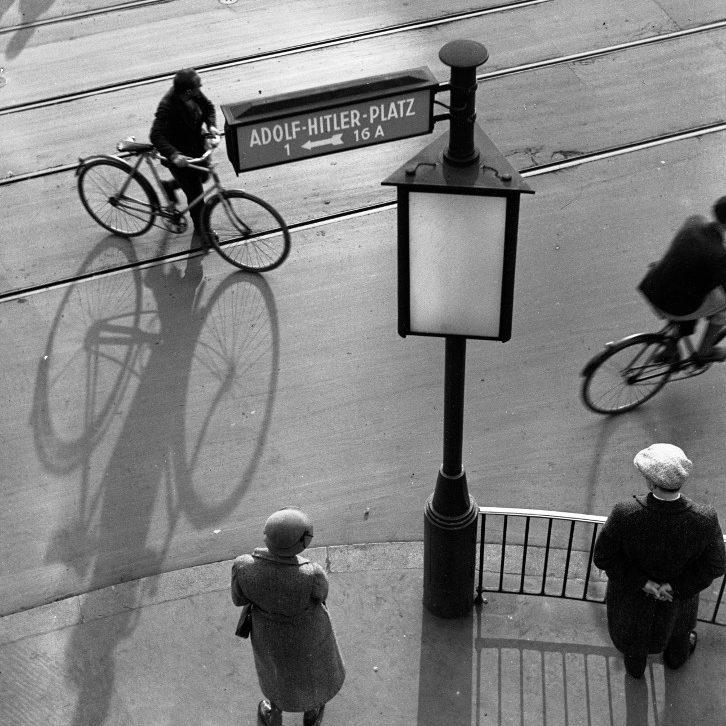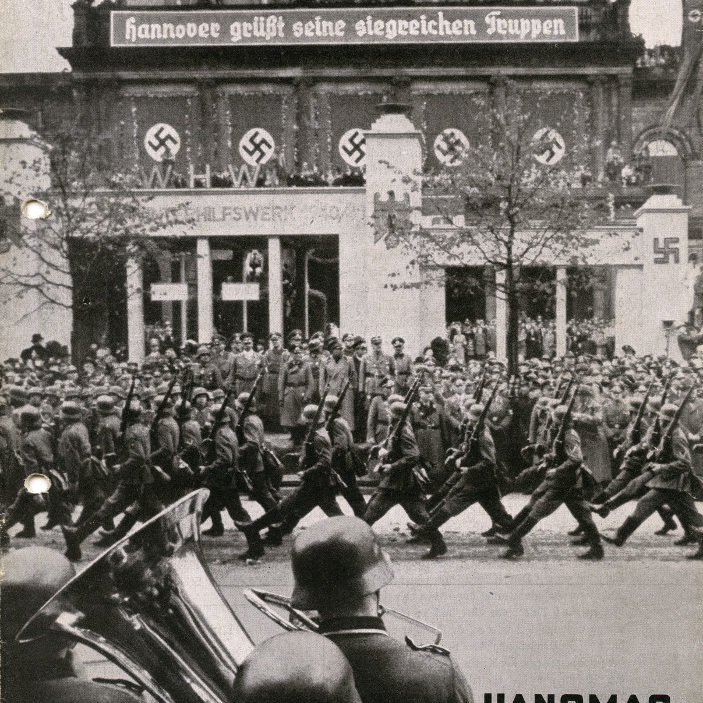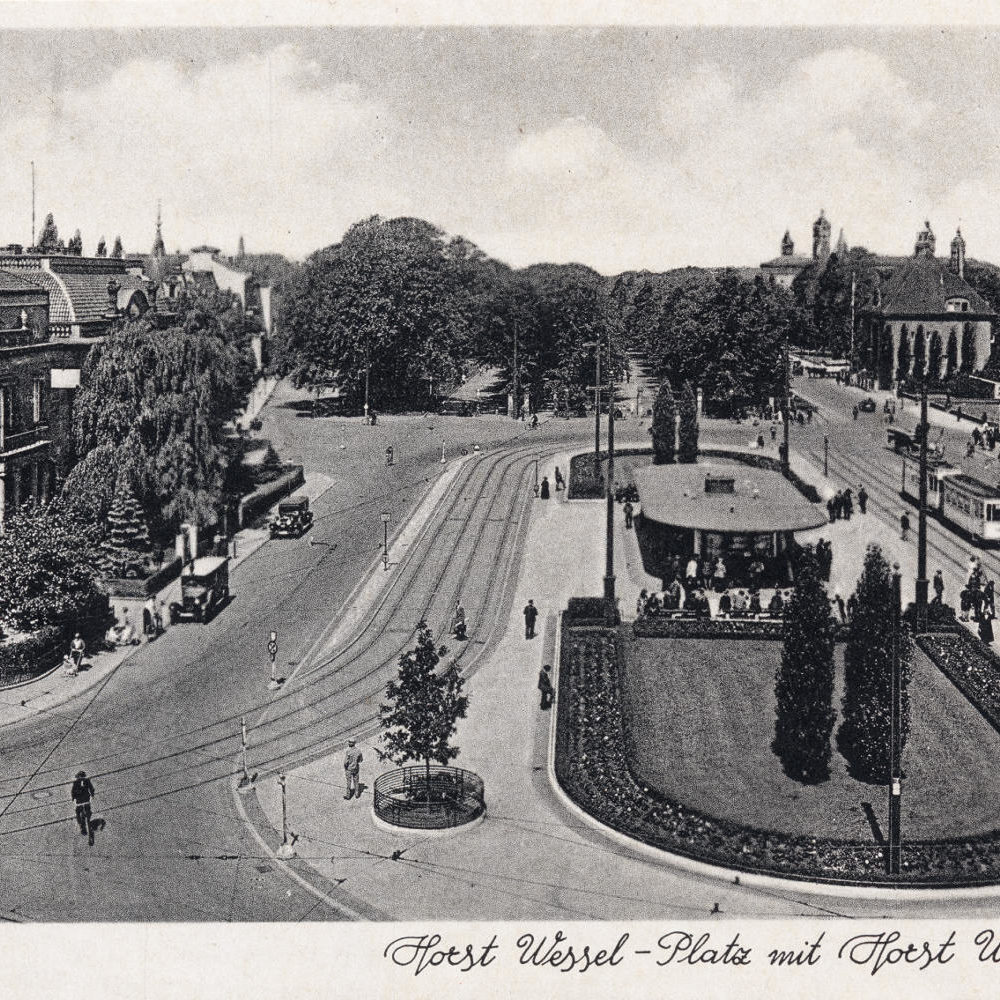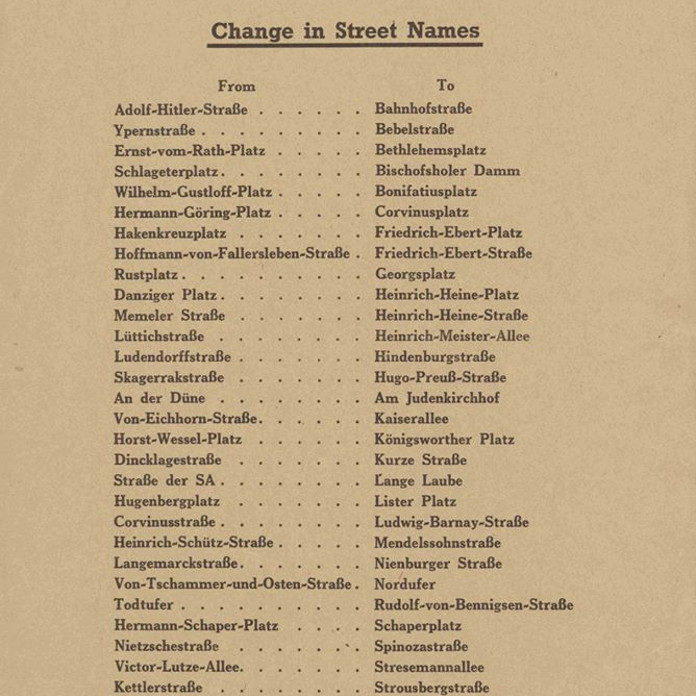After the handover of power to the National Socialists, a host of streets and squares in Hanover, as in other cities in the German Reich, are renamed for political motives. Not just main shopping thoroughfares such Bahnhofstrasse, but also quiet side streets and intersecting streets fall victim to the craze for renaming places.
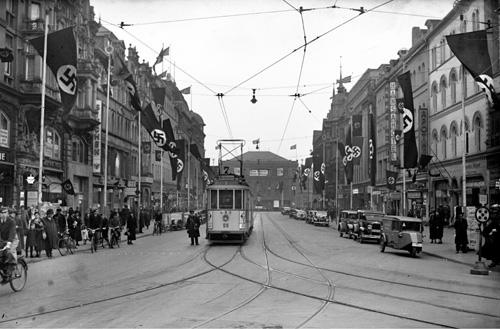
Every city centre has its own Adolf Hitler Street
Renaming was particularly prominent and radical in the city centre. After all, to this day, the area between the railway station, Kröpcke and the opera house is still the scene of Hanover’s defining landmarks. This made it all the more important, especially at the beginning of the National Socialist regime, to assert dominance by controlling the narrative of these public spaces. By the middle of 1933, every town, no matter how small, already had an Adolf Hitler Street or Adolf Hitler Square. Lange Laube in Hanover is renamed “Strasse der SA”, “SA Street” [SA is the abbreviation of ‘Sturmabteilung’, literally ‘Storm Detachment’, the Nazis’ paramilitary wing, known colloquially as Brownshirts]. The names of undesirable persons, such as the Jewish philosopher Baruch de Spinoza, are removed. After 1933, this tranquil street in the Philosophenviertel [Philosophers’ Quarter] was known as Friedrich-Nietzsche-Strasse, however today it bears its old name again.
Battles, generals and colonies
Commemoration of the “great victories of the German nation” before and during the First World War were also perpetuated by Sedanstrasse in the district of List, Gneisenaustrasse in the Zoo district, and so on. Even today, there is still an entire neighbourhood in the Badenstedt district whose streets are named after (former) German colonies (Cameroon, Togo…) – and until recently after German colonial officers, such as Major General Paul von Lettow-Vorbeck.
Current controversy
Since the 1980s, there has been a lively, at times very emotional, debate in the city of Hanover about eradicating names with a tainted history, which has occasionally been fought out in court. It was triggered by a dispute about the renaming Carl-Peters-Platz in Südstadt to Bertha-von-Suttner-Platz. Carl Peters was the founder of the colony of German East Africa (which comprised what is now Tanzania, Burundi, Rwanda and a small part of Mozambique). Peters had a reputation as a racist. The monument that still stands on the square was erected by the National Socialists in his honour. In the case of Lettow-Vorbeck-Allee, it took six years of wrangling between residents and the city of Hanover before it was redesignated Namibia-Allee. Paul von Lettow-Vorbeck was heavily involved in colonial crimes, took an active part in the Kapp Putsch against the Republic in 1920, was a supporter of Nazi eugenics and, after the Second World War, a proponent of South Africa’s apartheid policy. Currently, there is a heated dispute about the renaming of Hindenburg Strasse in the Zoo District.
Hanover: “strict guidelines”
Compared to other German towns, the city has imposed upon itself strict guidelines for the erasing of undesirable names. These dictate that a name can legitimately be changed if proof can be found that it stems from anyone who “was actively involved in an unjust regime”. In its final report issued on 1 November 2018, the advisory committee “Wissenschaftliche Betrachtung von namensgebenden Persönlichkeiten in Hannover” [“Academic Consideration of Eponymous Public Figures in Hanover”] recommended renaming 17 street names within the city limits.
Additional online information
Culture of Remembrance, committee’s recommendations 17 streets in Hanover should be renamed [in German]
Final report Recommendations made by advisory committee [in German] (PDF)
Historian versus historian Opposing expert opinions [in German]
Further reading: Click here
Texts and images: Michael Pechel

